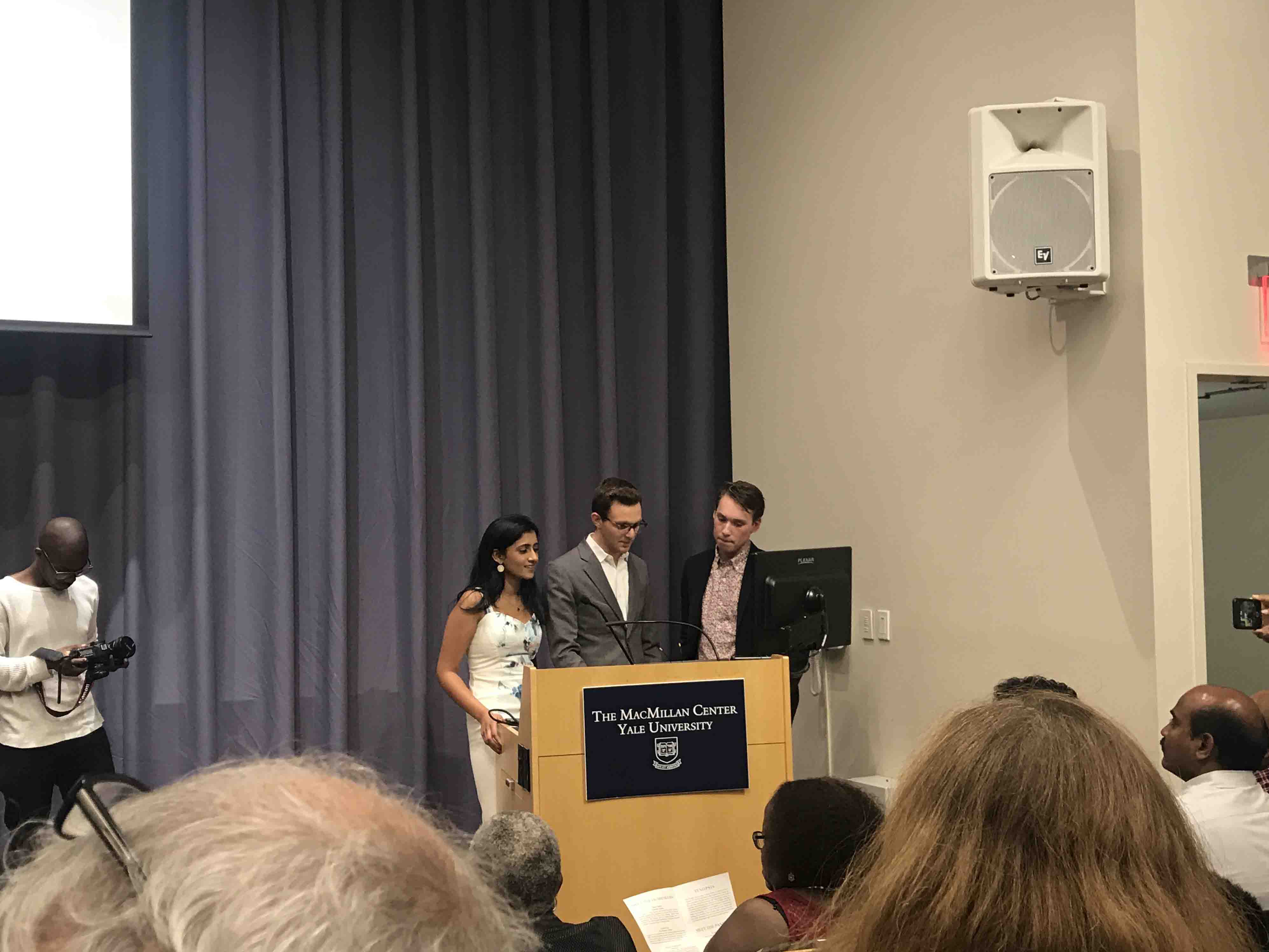
Over 200 people filed into Luce Hall on Saturday night to watch “120 Years,” the student-made documentary that tells the story of Scott Lewis, a New Haven resident who was wrongfully convicted of a double homicide in 1991.
“120 Years” tells the story of Scott Lewis, who was framed by a corrupt New Haven police officer, Detective Vincent Raucci. Lewis was framed after trying to disentangle himself from a drug ring that he had been involved with. Another member of the ring, who at the time was being investigated by the FBI, arranged for Lewis to be framed by Raucci, who was on the drug ring’s payroll. Lewis was convicted and spent 20 years in prison, where he built a case for his exoneration by reaching out to attorneys and reading through extensive legal texts. Filmmakers Matt Nadel ’21, Lukas Cox ’19 and Keera Annamaneni ’20 created the documentary with support from The Politic, one of Yale’s undergraduate magazines.
“I still haven’t fully processed Scott’s story yet, and I don’t know if I ever will,” said Annamaneni, who produced the documentary, in an interview with the News. “Twenty years were stolen from Scott Lewis, and he will never get back that time with his family. I still haven’t wrapped my mind around his loss, but knowing that our audience is now grappling with the same set of questions makes me hopeful that this story will move people to action.”
The audience included members of the Yale and New Haven community, as well as people who knew Lewis, such as his son. Also in attendance were others who have been wrongfully convicted, as well as members of the Innocence Project, a nonprofit organization dedicated to exonerating the wrongly convicted.
Annamaneni described working on “120 Years” as as “the greatest privilege of my life,” and said she hoped that the documentary did his story justice.
In an interview with the News, Cox, one of the film’s directors, recalled the months of hard work that went into creating the documentary. Like Annamaneni, Cox stressed that the he and the team appreciated the gravity of Lewis’ story and the responsibility that came with telling it.
“We knew from our first meeting with Scott that this story needed to be told well, with an objective eye and a commitment to journalistic integrity,” Cox said. “We edited this film throughout this summer, rarely in the same place, over an absurd array of locations — LA, New York, Houston, Boston, Ontario, Amherst, Boca Raton and New Haven, to name a few. The process was a true collaboration … fueled by all-day FaceTime calls and all-night editing sessions, and I’m really proud of our final product.”
Nadel, who also directed the documentary, described the experience of seeing Luce Hall fill up for the screening as surreal. When hearing about Lewis’ story, Nadel said he had a gut feeling that it had to be told.
The screening was followed by a panel discussion with Lewis; Darcy McGraw, director of the Connecticut Innocence Project; Vanessa Potkin, staff attorney for the Innocence Project; Brett Dignam, a Columbia Law School professor who helped argue Lewis’s case; and Bobby Johnson, who was also wrongfully convicted of a crime. When asked whether the criminal justice system has changed much since Lewis was convicted in 1991, Potkin and McGraw answered with a disappointed no. Potkin explained that prosecutors are very rarely disciplined for any wrongdoings they commit, while Lewis said that the justice system is geared toward getting convictions, not establishing the truth.
Audience member Kezie Nwachukwu ’20 said he thought the documentary was beautiful and that it shed light on a topic that often goes undiscussed. He added that he was particularly struck by how many people were involved in getting justice for Lewis.
“I think what wows me the most is that I’m friends with the filmmakers themselves, and they told me how amazing Scott is, and, while it’s such an amazing story, it’s scary how difficult it was and how many things had to go right,” Nwachukwu said. “The fact that an exceptional human being had to partner with brilliant law professors in the world for this to go right is kind of scary. … But yeah, I loved it.”
Audience member David Weinberg, who served 27 years in prison for a murder that he claims he did not commit and which remains on his record, said the film resonated with his personal experiences. He described the documentary as “phenomenal.”
In an interview with the News, Lewis discussed what he thought the audience should take away from the film screening.
“Wrongful convictions [are] a public safety matter,” Lewis said. “What people need to know is that perception is not necessarily truth, so a lot of people form perceptions when they see someone is arrested on television, you know, and they automatically jump to the conclusion that he must be guilty because he was arrested, and a lot of times that is so far from the truth.”
“120 Years” is the second documentary that The Politic has sponsored.
Isha Dalal | isha.dalal@yale.edu
Kelly Wei | kelly.wei@yale.edu







